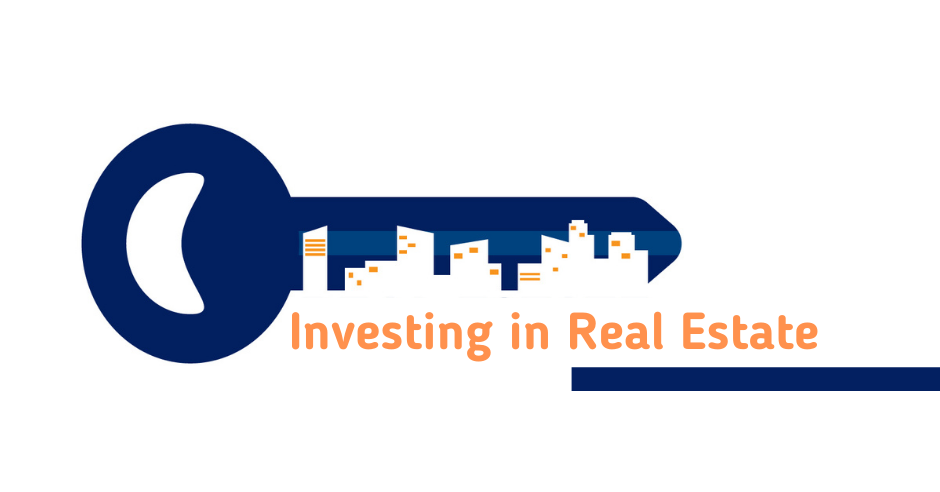Investing in Real Estate for Beginners

Investing in real estate, you hear it more and more often. Successful stories from people who put their money into real estate and thus very quickly build a ‘passive income. But what exactly is that? Is investing in real estate really a good way to earn extra money and if so, how does it work? And what is the difference between investing in real estate and investing in real estate?
Everyone dreams of it sometimes; be financially independent. What could be a better feeling than waking up every morning with the idea that you no longer have that pressure to have to work? By investing in real estate you can quickly provide for your daily maintenance and fixed costs with a few investment properties. Walking around with the idea that you no longer have to work but only work because you like it is a huge burden for many people.
When you invest in the right way and outsource property management, you have nothing to worry about at your investment properties. and you will receive the rental income neatly into your account every month. In addition to the rental income, you are also assured of a significant increase in the value of the home in the long term and you also have a substantial pension pot leftover when sold.
In this blog post, you will learn everything about investing in real estate, what the advantages and disadvantages are and I also give important tips to run as small a risk as possible.
Table of Content
What is investing in real estate?
To begin with, I will explain exactly what investing in real estate is. Investing in real estate is investing money in real estate, so land and associated buildings that are attached to the ground, with the aim of achieving a return so that you ultimately earn more money than you have invested. What is the difference between investing and investing in real estate? In principle, there is no difference between these terms, but investing also includes investing in real estate on the stock exchange in related real estate funds and institutions. Investing in real estate is more often understood to mean actually buying a real estate object yourself.
Return is an important term when it comes to investing and investing. Return is basically the ratio between yield and investment, usually expressed as a percentage. The higher the percentage return, the more profit the investment will yield.
Many investors are talking about creating passive income. This is income that does not come from salaried employment or other activities to be carried out yourself. By investing in real estate you create such a passive income, namely the rental income that you receive every month from the property without any work having to be done for this.
There is also a small difference between investing and investing. Investing is when the money automatically yields a return. Investing is when you put time and effort into the project to create a return.
Both terms are often used in real estate. And this is correct. If you put money into a good investment property, it will automatically yield a return. But your time and effort are also often needed. A few things could be renovated or refurbished, for example, but you also have to think about ensuring that there is always a tenant present in your building. If you want to purchase a property and still invest without having to do anything, you can also engage a property manager. They ensure that the rents are collected and deposited into the account monthly, they take care of the maintenance work and can carry out inspections on the property so that the property is kept clean and not neglected by the tenants.
Types of investments
There are different types of real estate investments. Think of investing in houses, office spaces, rooms, or even shopping centers and hotels. Each has its own advantages and disadvantages. So consider these carefully. A big difference is in the course price range.
How do you invest in real estate?
It all sounds nice and well, investing money to make more money. But isn’t it easier said than done? Can’t you only start investing in real estate when you already have a lot of money yourself?
Well, that is not too bad, more than most people think. An average terraced house is easily around 200,000 euros, but that does not mean that you have to have 200,000 euros in your savings account to be able to invest.
Some several banks and parties offer an investment mortgage. Several well-known investment mortgage providers are NIBC, RNHB, Domivest, and ING. These parties already offer a mortgage of up to 80% of the appraised value of the property. So you will (almost) always have to put in money yourself, but not nearly as much as what most people think.
You can therefore invest using an investment mortgage. You can of course also pay off the purchase price in one go if you have the money. However, this is not recommended, because the less of your own money you invest, the higher the return can be.
Investing in real estate with the equity of my home
The only way to invest in real estate without your own money is to apply for an investment mortgage with the added value of your own home or investment property. This way, no own investment has to be used. With an average of € 60,000 in equity on your own home, you can already buy a current investment property. That is why investing in real estate with the equity of your own home is a smart way to buy your first investment property. Moreover, the interest on a mortgage on your own home is a lot slower than the interest on a real estate mortgage. So you make a considerably higher return by including the equity of your own home for an investment property.
How to invest successfully in real estate?
Investment mortgages make real estate investing more accessible to the average person than people think. Instead of saving for the car that you have longed for for years, which costs € 40,000 and will undoubtedly decrease in value, you can already make a good investment with the same amount, which will only generate more money. This way you can later drive the car you want and keep some extra pocket money in your savings account.
How do you invest in real estate with as few risks as possible? Below are important steps and tips that you will want to follow when investing in real estate.
First, it is important to research where you are going to invest and in what you are going to invest. It is very important to check neighbourhood the state of the property in advance, whether the property is in a good location, in a good and whether there are facilities nearby such as supermarkets and schools. Make sure that there is a lot of demand in that area and that you quickly find a tenant or a buyer. When investing in real estate, it must be considered whether the home will also be rented out throughout the year in bad economic times. If this will be the case, the property is suitable to add to your real estate portfolio.
It is also important to know how many surrounding properties are being sold or rented out. Also, ask yourself whether the property is in the social or free sector. In the free sector, you can determine the rents yourself and in the social sector, the rents go up to a certain maximum. Investment property must therefore always end up in the free sector. You can find this out based on the points system. Do you also need to look at the regulations and zoning plan in the area? Can it be rented out and if so under what conditions?
Second, it is useful to make a plan. Take a look at the building that you have in mind and think for yourself what costs you will receive. Think of HOA, property tax, sewerage charges, water board tax, insurance, maintenance, etc. Also, take into account unforeseen costs.
What may need to be replaced immediately before you start renting out and can you create added value by adding an extra room or by renovating?
Tip: Also take a look at other properties and go through steps 1 and 2. There may be other properties that meet these types of points much better and with which you can achieve a higher return. Finding an ideal investment property is usually not done in one go.
Compare different properties with each other and decide based on this which property is most favourable for you to invest in.
Third, you want to look for a bank that wants to provide you with an investment mortgage. It happens that a bank rejects your request. Therefore, visit various banks so that you can guarantee the financing of the property.
Different banks also offer different mortgages. One finances 70%, while the other finances up to 80%.
Tip: Most banks want to see numbers. They often want to know how long you have been employed, view your salary slips, if you are going to invest from a company what the annual figures are, etc. Have an interview with different banks, so you will find out exactly what they expect from you and you can ensure that you meet all the requirements. However, most banks work with an intermediary. Would you like to know more about the intermediaries we work with? Then feel free to contact us.
Fourth, it is important to ensure that there is always a tenant. In case of vacancy, you pay the rental costs yourself. So network in advance and look for potential tenants.
Make sure the tenants are reliable. So focus on the right target group, set requirements for the tenant, and meet interested tenants face-to-face.
Please note that renting out yourself is seen as income in box 1 because you perform ‘work’. You will also have to visit the property regularly for an inspection and collect the rent. You are responsible for everything yourself.
Tip: It is also possible to outsource management to a property manager. These parties can fully take over the management, such as maintenance, both finding a tenant and collecting the rental income, engaging mechanics, etc. They often charge 0.75 – 1 month’s rent + VAT for recruitment and selection.
Finally, if everything went well, you can enjoy your extra rental income. You have built up the famous “passive income” and your money is now working for you. The question is what you are going to do with it. Are you already satisfied with the income from one property, or are you going to further expand the extra income?
The leverage makes it possible to invest with the rental income or added value of the property. This way you can expand the passive income as much as you want, as long as you have time for it. These steps can therefore always be repeated.
What are the benefits of investing in real estate?
Real estate is something that will always exist. Demand to live in there always. You invest with the house as collateral, which is tangible and always remains worth something.
It protects against inflation. Investing in real estate is not inflation sensitive.
A higher return can be achieved compared to other investments. Especially compared to the savings interest.
It provides an (extra) income stream. Also called a passive income. Monthly income that you have to spend very little time on in a well-maintained building.
Expand your real estate portfolio with leverage. You can make a new investment with the income or added value of the investment property. In this way, you expand your real estate portfolio and create more and more returns and income.
What are the disadvantages of investing in real estate?
An own contribution of approximately 20% or more must be deposited. Also, you can count on maintenance costs and unforeseen costs that are involved. If something breaks, you are responsible for it.
You will also have to maintain the building, which takes time. The condition of the property must be checked regularly.
You will have to ensure that there is always a tenant and that you collect the rental costs every month. If the property becomes vacant, the mortgage costs will of course continue.
More information
Would you like to receive more information or would you like to invest in real estate yourself? Then request a real estate consultation with us without any obligation. During this meeting, we can give you detailed advice and, as a next step, find a current investment property. Every day we have a range of new and exclusive off-market investment properties with good returns.
Also Read: House or Apartment?









